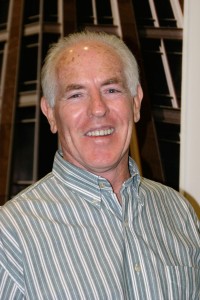
In May 2010, the city was about to conduct an air quality study at drilling sites around town. A council-appointed committee was charged with making recommendations on which company to hire.
Ashford thought the presence of three gas-drilling employees on the committee violated the city’s ethics code. The employees, he complained, derived more than 10 percent of their annual income from the gas drilling industry — the threshold set by the code for determining whether officials have “substantial interest” in an issue and therefore must recuse themselves from voting or providing input.
“Well, the three members of the ethics review committee at the time — there were supposed to be five, but Moncrief let two slots go vacant — heard the complaint,” Ashford recalled. “And they agreed with me.”
Moncrief definitely did not. When the board issued its ruling, the mayor fired them. He did it on the same day that the council held a special meeting to hear the gas company employees’ appeal of the board’s decision.
At that Aug. 19, 2010, special meeting (“Has Fort Worth Lost Its Moral Compass?” Sept. 22, 2010), then-City Attorney David Yett explained to the council that despite the ethics review committee’s findings, the council didn’t have to see it that way.
They didn’t: The ethics violation finding was reversed. According to the minutes of that meeting, Moncrief said it “was typical and standard operational procedure to ask citizens who were subject matter experts or industry experts to serve on the city’s task forces, commissions, boards, etc. He stated that the city had done this for years.”
After the violation was overturned, according to the minutes, “Mayor Moncrief requested a complete review of the city’s ethics ordinance.” Of course, Moncrief added, the council “certainly wanted to assure that the citizens had recourse when appropriate and to ensure public officials were independent, impartial, and responsible to the citizens of this great city.”
He also requested that the city attorney “bring to the council interim revisions that could be made to the city’s ethics ordinance to protect task force members” as well as any other interim changes thought necessary while the complete overhaul was being done.
And that set the tone for what’s been done since, said Ashford. “They were talking about what the city council wanted, but to me the ethics committee is there to protect the citizens from wrongs that the city officials might be doing.”
Louis McBee, a longtime activist and a co-founder of the North Central Texas Communities Alliance, believes the entire rewriting of the ordinance is being done to protect city officials. McBee has also filed ethics complaints. “Every complaint that Jim Ashford and I lodged was simply dismissed by the ethics review board,” he said.
Burdette — one of only two city officials who returned phone calls to the Weekly for this story — disagreed. “The suggested changes … will define and clarify some things in the current ordinance to make them more understandable to everyone,” he said. “I don’t have a feeling that anything that’s been suggested lacks transparency.”
The ethics revision process seems to be flying under the radar of even some of the city’s most active watchdogs.
Several groups and organizations said they knew nothing of the code rewrite; others, including two longtime activists, said they are so disgusted with the way the city is handling this and other issues that they’re giving up on Fort Worth altogether.
“Something’s wrong there,” Wechsler said. “That goes to the heart of trust in government.
“The whole point of a city or state or any other agency or business having a code of ethics is to provide the community with a sense of trust,” he said. “And when an ethics code is written in such a way that provides little transparency, well, that public trust is shaken.” Ethics go beyond laws, he said, in recognizing that the appearance of undue influence or unfair dealings can be injurious to a city, regardless of whether the letter of the law has been followed.
“It’s really not difficult,” said Picht. “If you don’t have ethics in government, you have nothing.”












Good story, Peter. You’ve just explained better than anyone has yet, the “Fort Worth Way.”
It is astonishing what the fascists who control Fort Worth have done to the taxpayers and other voters who have to live here. It’s the Fort Worth Way for sure.
Stan Rogers composed and recorded a song, “Barratt’s Privateers”, in which the exclamation in the chorus exactly expresses my hopes for their ultimate reward.
The City Attorney appears to have little or no regard for state law or the Attorney General Opinions. The matter of a City Attorney providing an opinion to a Public Official and that in turn would exempt the Public Official from any wrongdoing is contrary to Texas Attorney General Opinion GA-0068. In that opinion it states the following.
“The City of Seguin may regulate conflicts of interest involving city council
members by adopting ordinance provisions that are not inconsistent with
Local Government Code chapter 171. Thus, the city may not attempt to
exempt its officers from requirements imposed by Local Government
Code chapter 171.
Note the Attorney General Opinion specifically states “the City may not “ATTEMPT” to exempt its officers from the requirements of Local Code 171.
Local Code 171 is part of Texas Ethics requirements.
What Sarah Fullenwider proposes in the new Ethics Ordinance is exactly that, an attempt to exempt the City’s public Officials from the law.
Fort Worth citizens do not need or want City Government Officials at any level that cannot be trusted.
A large problem in having the City Attorney deem whether a city official gets a pass on an ethics violation is that he/she is looking primarily at the legal code and not an ethics code.
When Mayor Moncrief and two council members flew on a Hillwood jet to Nebraska to confer with Cabela’s officials prior to awarding a tax abatement and inclusion in a TIF, the ethics issue arose. City Attorney David Yett ruled that if the city were to reimburse Hillwood something like $850 it would be legal. You couldn’t charter a private jet for $850. But that’s not the issue – it was still unethical because we had not voted on the tax incentives and all three council members subsequently voted in favor of those incentives. Were they promised anything in return for their votes? I would hope not but that trip was out of the public view and could leave the impression that some kind of deal was made.
Ethics is not about what is legal. Ethics is about what is right versus what is wrong, what is correct versus what is incorrect, and what is moral versus what is immoral. The distinction is substantial. Not all laws are right or moral. That’s why the ethics committee was to be made up of representatives of the community. Of course that’s a long time ago when the City Council and City Attorney were ethical themselves.